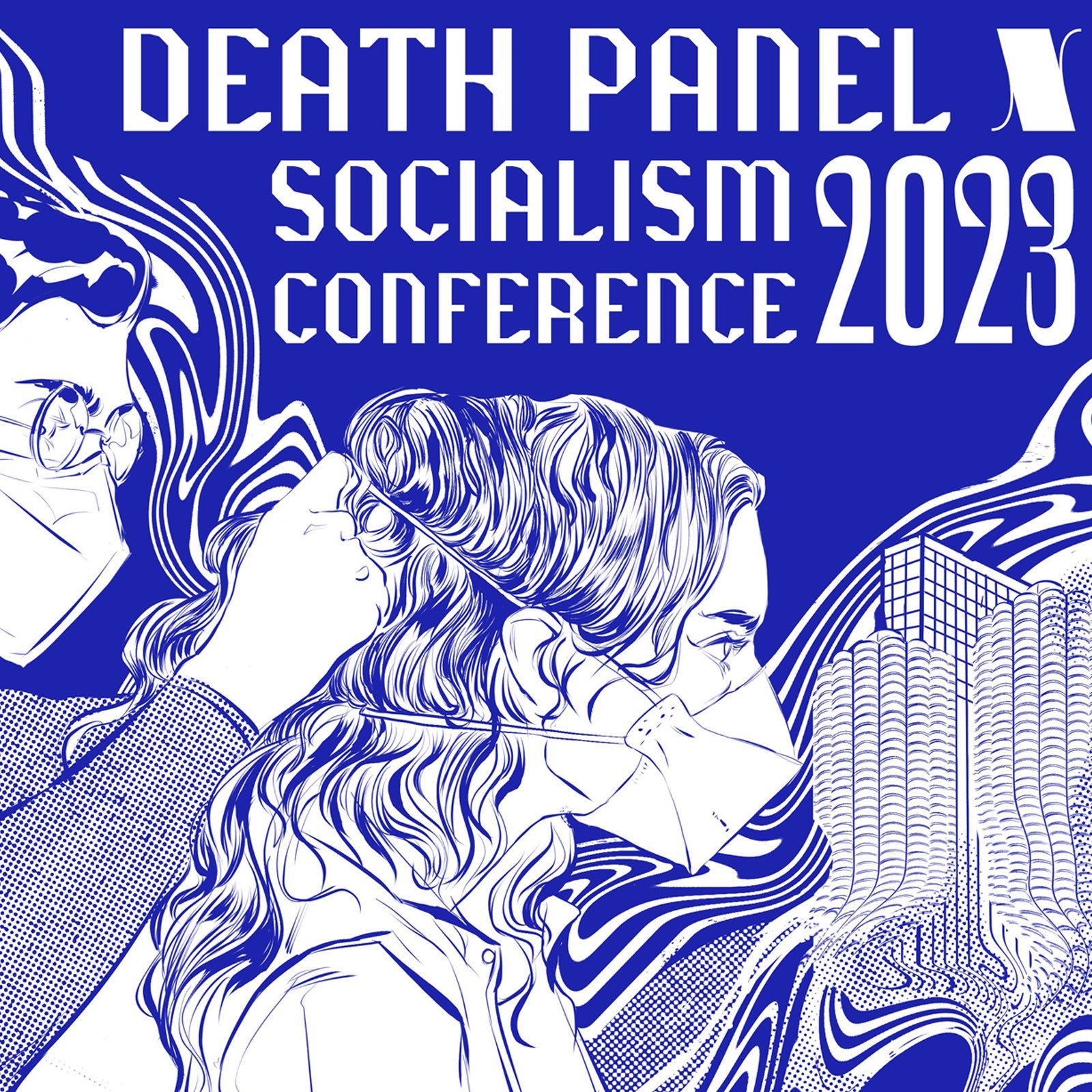Transcripts
Our goal on Patreon is to reach 2500 patrons—at which point we can afford to have regular transcripts available for all main feed episodes. For now, transcripts are available for select episodes, and we are slowly working on catching up on the back catalogue and reducing the amount of time it takes for us to finish a transcript and post it.
At the moment our capacity to offer transcripts of Death Panel is limited. This is due to Beatrice’s disability, and the conflicting access needs that exist with regard to editing/correcting transcripts and her low vision/blindness. The labor of producing transcripts is usually poorly compensated and historically is often done by disabled people due to the flexibility and availability of working on transcription from home. We are committed to making the show accessible and paying our transcript makers a fair wage.
If you would like to help us reach our goal, then please become a patron and support our work to make the show more accessible.

DP x S23: How Capitalism Kills: Social Murder and Covid-19 (Session 2)
Death Panel podcast collaborated with the organizers of the Socialism Conference to put together five sessions at this year’s conference on the political economy of health and disability. In this session, "How Capitalism Kills: Social Murder and Covid-19," Death Panel podcast co-hosts, Artie Vierkant and Abby Cartus, are joined by friend of the panel and historian, Nate Holdren, to discuss Friedrich Engels’ concept of “social murder,” the structural forces within capitalism that abandon populations to injury, debility, and premature death, and how social murder is a key component of capitalism, not merely a side effect.

DP x S23: Resisting Carceral Sanism (Session 3)
Death Panel podcast collaborated with the organizers of the Socialism Conference to put together five sessions at this year’s conference on the political economy of health and disability. In this session, "Resisting Carceral Sanism" Death Panel podcast co-host, Beatrice Adler-Bolton, is joined by criminologist, author and disability theorist, Liat Ben-Moshe, and mad advocate, author and activist, Leah Harris, discuss the increasing wave of policies and legislation—from Eric Adams’ stance on involuntary hospitalization to Gavin Newsom’s Care Courts—that seek to criminalize madness and people with intellectual and developmental disabilities. They also discuss why it is so critical for the left to work against these policies, and how to understand the politics of what Ben-Moshe has termed “carceral sanism.”

DP x S23: Decolonial Disability Politics and the Left (Session 4)
Death Panel podcast collaborated with the organizers of the Socialism Conference to put together five sessions at this year’s conference on the political economy of health and disability. In this session, "Decolonial Disability Politics and the Left" Death Panel podcast co-hosts, Beatrice Adler-Bolton and Jules Gill-Peterson, are joined by theorist, Jasbir Puar, and Shira Hassan, who has spent decades building, documenting and participating in systems of change and support outside of the societal frameworks of oppression and exploitation. This session explores the links between disability, debility, and empire: how neoliberal framings of disability structurally exclude people disabled by ongoing colonialism and global/national/local schemes of extraction, and how to expand our conceptions of debility, disability, and capacity to include populations that don’t fit within tidy frameworks of pride and respectability.

DP x S23: The State, Austerity, and the Politics of Healthcare (Session 5)
Death Panel podcast collaborated with the organizers of the Socialism Conference to put together five sessions at this year’s conference on the political economy of health and disability. In this session, "The State, Austerity, and the Politics of Healthcare" Death Panel podcast co-host, Phil Rocco is joined by historians Gabriel Winant and Salonee Bhaman to discuss how fiscal decentralization has become an underappreciated force driving the healthcare politics of the United States, and what it can tell us about where we are now. The healthcare struggles of the last century have been profoundly shaped by the structures of US federalism: what resources are allocated to states, and what artificial constraints are imposed on them that produce policy in the mold of austerity?
